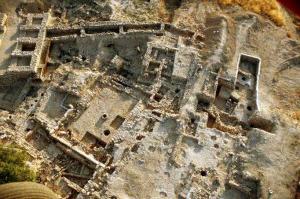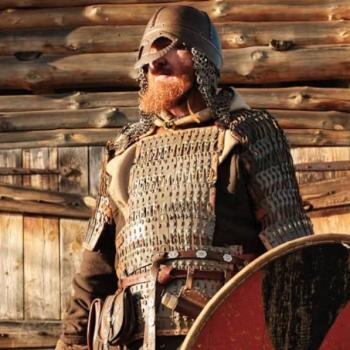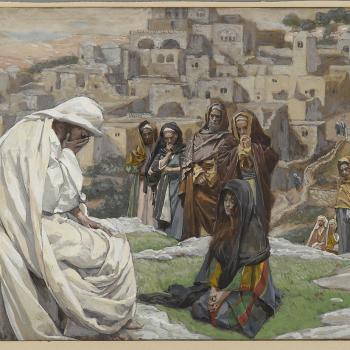
The Bible’s second book, Exodus, tells about Israel’s beginning as a people. Is this a made-up story or real history or something between? What can we say, or guess, from non-biblical sources about Israel’s beginning? How did people in a collapsing civilization around the end of the Bronze Age find a way to go on?
This is Episode 10, Part 2 of the Rowingwith Michael Series: A journey through the Jewish/Christian Scriptures in Verse and Commentary. (See Part 1 here.) Introduction and Contents for this series HERE.
One thing we know for sure. The people who became Israelites found new stories to tell, stories of liberation from a powerful oppressor. From these stories liberation movements have derived life and power down to our present day.
For Christians it is not enough that they be just stories, no matter how inspiring. Christianity, following Judaism, is a historical religion. A scientific theory can forget the history of its discovery and be just as valid. A Confucian ethic is just as ethical if we forget who Confucius was. Buddha’s Eight-fold Path loses none of its power to enlighten if it turns out Buddha never existed. But biblical religion is more than teachings and practices. It lives with its history, past present and future. It presumes that its history is in essential respects true. Christianity is false if its history is false. If Jesus mythers (those who say Jesus’ existence is a myth) are correct, Christianity is not.
Christians share scriptures with Jews. Israel’s history is also Christianity’s. Responsible historical investigators come to a variety of conclusions about events that Jewish and Christian Scriptures relate. Christianity cannot ignore these investigations and ensuing doubts, not and continue to be a religion whose history belongs to its essence.
Investigating Israel’s beginning
The story that I will attempt to tell of Israel’s beginnings does indeed vary from a literal reading of the Book of Exodus, not because I am sure of an alternate story but because historians and archaeologists are pretty sure that much of the story Exodus presents cannot be historical.
Well, let’s draw back from that last statement a little, temporarily only. Nearly a million slaves and their families could have traveled heavily guarded paths out of Egypt, but only with divine assistance. Then that god would have had to make sure such a calamitous event never made it into Egyptian records. The same former slaves could have wandered for forty years in the desert, again with divine assistance. But that god would have had to erase all evidence of that huge company’s desert sojourn. There could be no traces of burial places or garbage heaps. God could have done that, too; but what kind of god is that? One who deliberately makes it look like something that happened never did happen?
I’m content to learn more about the Bible’s story from historians and archaeologists. I take their theories and conclusions under advisement, not as holy writ. In fact, I will make my own guess among possible scenarios. Whichever story one chooses, one still has to connect it the way the Bible tells the story. I will try to do that too. For a Christian history is that important.
Wanderers, slaves, farmers, herders, bandits
The Bible in the Book of Genesis presents Israel’s remote ancestors as wanderers into and out of Canaan and eventually south to Egypt. We know of such wanderings, especially in times of famine. Foreigners lived in Egypt both by choice and by being forced into slavery. We know of no mass uprising and escape of slaves, but we can’t rule out a drifting away of slaves or even a small determined breakout.
On the other end of the story’s geography, we know when and where the Israelites began a somewhat cohesive existence. That was in the 13th century, probably hear its end, in the central, highlands of Palestine. Uncertainty surrounds where these people came from and, especially, why. It’s likely there were farmers from Canaanite cities and villages joined by herders of cattle. Life for these peoples had been getting steadily worse due to rapacious overlords and the same rulers’ lessening ability to safeguard a once thriving economy. A disorganized or falling-apart economy needs even more protection as more people on the fringes take up a life of banditry. We can think of the people who became the Israelites as refugees from economic oppression, possibly joined or even led by these bandits, known by a name, “hapiru,” that even sounds like “Hebrew.”
Can we connect the Bible’s story? The Bible says Israelites invaded. Would a group that was in conflict with other groups over a piece of land tell that kind of story? More likely they’d tell a story that made them residents since time immemorial. That would give them the right to be there. Unless, that is, everyone knew they really were recent invaders from a foreign land.
A foreign name–Yahweh
Perhaps, and only perhaps, the Israelites’ god, if not all or most of the Israelites themselves, did make such an invasion. That god’s name was “Yahweh,” written in Hebrew without the consonants as YHWH. The Midianites, an archeological discovery shows, worshiped a god named YHW. Midian is located close to the route from Egypt to Canaan. In the Bible story Moses hightails it to Midian after killing an Egyptian slave driver. There he marries, has an encounter with a burning bush, and learns God’s name, YHWH.
From what I’ve read scholars don’t yet agree on what to make of this similarity of names. Is it a coincidence? Are the dates wrong? Or is it evidence for the existence of some Moses-like figure in real history, leading what might have been only a small group of slaves from a weakening Egypt and joining with other groups to form the first Israelites?
When they joined up with the new communities forming in Canaan, this hypothetical group would have had quite a story to tell. That story might have evolved to include a miraculous events orchestrated by a new god, Yahweh. It would have been a mixed population that came together around a single group of stories. No tyrant kings for these folks—not yet. That wouldn’t go well with the new stories they had to tell. They were stories of liberation from one sort of oppression or another, political or economic. The highland dwellers at first had no kings and, in fact, not much distinction between rich and poor.
From Exodus written by Carol Meyers for The New Cambridge Bible Commentary
Many archaeologists and biblical scholars thus identify the occupants of the new settlements as Canaanites who left their urban centers to strike out on their own in the hill country. Such movements of people apparently were the result of the profound turmoil at the end of the thirteenth century bce because of collapse of the Late Bronze Age urban culture and the disintegration of Egyptian imperial control over the Levant, to say nothing of extensive drought, famine, and disease. Joined by other similarly affected groups from the coast and the north and perhaps also by some pastoral elements from the east, they became known as Israelites. The relatively isolated villages of the highlands provided a congenial environment for the emergence of a new ethnic identity, with an ideological component acknowledging Yahweh as their god. (page 7)
Of particular interest in light of the story of Moses’ childhood is the Egyptian practice of taking children of vassal rulers as hostage and raising them in elite Egyptian households, as if they were Egyptian children. Some of the Asiatics in Egypt held important positions – as scribes, overseers of building operations, palace butlers, and heralds – in the government, and those with technical skills were valued in artisans’ workshops. But most of the immigrants, especially those brought into Egypt as captive or tribute, worked as menial laborers in state or temple projects. … [S]ometimes groups of foreigners were settled in enclaves, especially in the Delta in the late thirteenth or early twelfth centuries bce, and provide a reasonable parallel to the sojourn depicted in Exodus. (page 9)
[T]he general turmoil at the end of the Nineteenth Dynasty created precisely the kind of weakened Egyptian power that would have occasioned attempts of foreigners to leave Egypt. Moreover, the folklore and local Egyptian color embedded in the [Bible’s] narrative imply familiarity with conditions of this period. (page 10)
If the experience of freedom was the “what” that motivated this process, Moses would have been the “who.” It is not atypical for legendary figures to be part of the “revolution” of new national self- awareness among disparate groups such as would have been part of ancient Israel’s beginnings in the premonarchic and early monarchic periods. (page 15)
[A]cceptance of a new god [named Yahweh], brought in by a small group of refugees from Egypt, led by a charismatic figure convinced that the escape was the result of the will of this new deity who had been encountered in Midian, a new deity with a new narrative of journey and a commitment to freedom, would spread among the highlanders, creating a new collective identity and signifying a distinction from certain aspects of the surrounding culture. (page 15)
Yahweh and liberation
The meaning of the name YHWH is a mystery: “I am who I am” or something like that. It doesn’t tell you much and maybe that’s on purpose. Maybe God really meant, “Don’t ask who I am. Watch what I do.” For these people, when they were strong, the things God did were works of liberation—liberation from old authoritarian patterns and gods of the status quo. This Hebrew God has had that same meaning for oppressed people of many ages and places since. It turns out that the Bible really is about history. It’s about real Israelite history in some vague, imprecise ways, but not just ancient history. People in many places and times have been able to find their own hopes in this Israelite creed:
A wandering soul my father was.
Went down to Egypt just because.
There he became a people great,.
Whom the Egyptians loved to hate.“And the Egyptians treated us harshly, and afflicted us, and laid upon us hard bondage. Then we cried to the Lord the God of our fathers, and the Lord heard our voice, and saw our affliction, our toil, and our oppression. And the Lord brought us out of Egypt with a mighty hand and an outstretched arm with great terror, with signs and wonders. And he brought us into this place and gave us this land, a land flowing with milk and honey.” (Deuteronomy 26:5-9)











